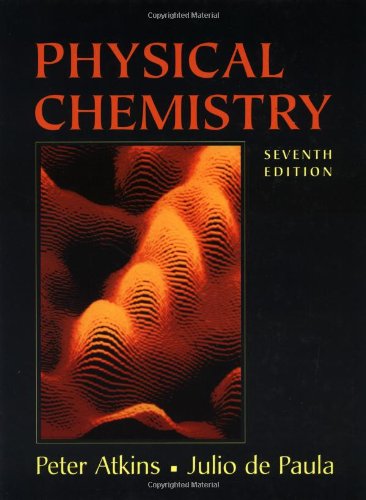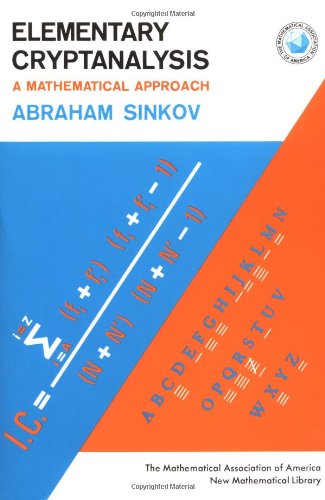(Part 2) Top products from r/crypto
We found 23 product mentions on r/crypto. We ranked the 47 resulting products by number of redditors who mentioned them. Here are the products ranked 21-40. You can also go back to the previous section.
21. Understanding Cryptography: A Textbook for Students and Practitioners
Sentiment score: 1
Number of reviews: 1
 Show Reddit reviews
Show Reddit reviews22. BigNum Math: Implementing Cryptographic Multiple Precision Arithmetic
Sentiment score: 1
Number of reviews: 1
Used Book in Good Condition
 Show Reddit reviews
Show Reddit reviews23. ASICMiner Block Erupter Blade 10.7gh/s Miner (Rev2)
Sentiment score: -1
Number of reviews: 1
Fully Tested and Upgraded Asic Revision 2 Blades.10.7= GH/s Output per blade.Aftermarket Heatsinks included and already installed.Kept in Thermal and humidity controlled secured enviroment.Each unit rigorously tested to ensure quality.
 Show Reddit reviews
Show Reddit reviews24. Hacking: The Art of Exploitation, 2nd Edition
Sentiment score: 0
Number of reviews: 1
No Starch Press
 Show Reddit reviews
Show Reddit reviews25. Physical Chemistry
Sentiment score: 1
Number of reviews: 1
Used Book in Good Condition
 Show Reddit reviews
Show Reddit reviews26. The Block Cipher Companion (Information Security and Cryptography)
Sentiment score: 2
Number of reviews: 1
 Show Reddit reviews
Show Reddit reviews27. Mathematical Notation: A Guide for Engineers and Scientists
Sentiment score: 1
Number of reviews: 1
 Show Reddit reviews
Show Reddit reviews28. An Introduction to Mathematical Cryptography (Undergraduate Texts in Mathematics)
Sentiment score: 1
Number of reviews: 1
Springer
 Show Reddit reviews
Show Reddit reviews29. Blockchain: A Practical Guide to Developing Business, Law, and Technology Solutions
Sentiment score: 1
Number of reviews: 1
 Show Reddit reviews
Show Reddit reviews30. Applied Cryptography: Protocols, Algorithms and Source Code in C
Sentiment score: 1
Number of reviews: 1
Wiley
 Show Reddit reviews
Show Reddit reviews31. Elementary Cryptanalysis: A Mathematical Approach (Mathematical Association of America Textbooks)
Sentiment score: 0
Number of reviews: 1
Used Book in Good Condition
 Show Reddit reviews
Show Reddit reviews32. Malicious Cryptography: Exposing Cryptovirology
Sentiment score: 0
Number of reviews: 1
ISBN13: 9780764549755Condition: NewNotes: BRAND NEW FROM PUBLISHER! 100% Satisfaction Guarantee. Tracking provided on most orders. Buy with Confidence! Millions of books sold!
 Show Reddit reviews
Show Reddit reviews34. The Codebreakers: The Comprehensive History of Secret Communication from Ancient Times to the Internet
Sentiment score: 1
Number of reviews: 1
Scribner Book Company
 Show Reddit reviews
Show Reddit reviews35. The Art of Intrusion: The Real Stories Behind the Exploits of Hackers, Intruders and Deceivers
Sentiment score: 1
Number of reviews: 1
John Wiley Sons
 Show Reddit reviews
Show Reddit reviews36. Guide to Elliptic Curve Cryptography (Springer Professional Computing)
Sentiment score: 1
Number of reviews: 1
 Show Reddit reviews
Show Reddit reviews37. An Introduction to Mathematical Cryptography (Undergraduate Texts in Mathematics)
Sentiment score: 0
Number of reviews: 1
 Show Reddit reviews
Show Reddit reviews38. Crypto: How the Code Rebels Beat the Government Saving Privacy in the Digital Age
Sentiment score: 1
Number of reviews: 1
 Show Reddit reviews
Show Reddit reviews


Being a "techy" isn't really useful with learning and understanding crypto. There's many cryptographers that are mathematicians who barely use computers. Cryptography is a multi-faceted discipline but the typical divide is between mathematicians and computer scientists.
So having a foundation in math & computer science is very useful.
In any case, Simon Singh's book is a good introduction. It is a pleasant read but a bit fluffy.
Although not specifically crypto, I would start with Network Security by Kaufman et al. It primarily discusses network security but gently introduces some cryptography primitives.
Another book from a mathematician perspective is this book.
Then there's joy of cryptography which is a formal treatment using a notion of provable security (a bit of a different take to Katz & Lindell Modern Cryptography), which computer scientists tend to have a boner for.
Cryptonomicon by Neal Stephenson is a classic. Takes in Bletchley Park, among much more. It is a novel, not a text book, so it won't actually teach you anything as such - but crypto is running through the book, along with much other tech stuff, plus it is a brilliant story. Not really "light" but I wish it took me longer to read I enjoyed it so much.
Implementing SSL/TLS
https://www.amazon.com/Implementing-SSL-TLS-Joshua-Davies/dp/0470920416/ref=sr_1_4?keywords=openssl&qid=1550253200&s=gateway&sr=8-4
practical guide to implementing SSL and TLS. All examples are written in C with the implementation of DES, AES, RC4, Large Integer Arithmetic, RSA, Deffie-Hellman, HMAC, DSA, Elliptic Curve, X.509.
​
For me, the best theoretical books on cryptography, but without deep immersion in mathematics:
Understanding Cryptography: A Textbook for Students and Practitioners
https://www.amazon.com/Understanding-Cryptography-Textbook-Students-Practitioners/dp/3642041000/ref=sr\_1\_1?crid=3700J8SGJK4QP&keywords=understanding+cryptography&qid=1550253725&s=gateway&sprefix=Undes%2Caps%2C295&sr=8-1
and it goes better with video lectures https://www.youtube.com/channel/UC1usFRN4LCMcfIV7UjHNuQg
​
A good book on cryptanalysis for symmetric algorithms:
The Block Cipher Companion (Information Security and Cryptography)
https://www.amazon.com/Cipher-Companion-Information-Security-Cryptography/dp/3642173411/ref=sr_1_fkmrnull_1?crid=NNR5L5I1VYK2&keywords=block+cipher+companion&qid=1550253926&s=gateway&sprefix=The+Block+cipher+%2Caps%2C340&sr=8-1-fkmrnull
​
good exercise: http://cryptopals.com/
​
I'm not sure what was on your midterm, if you get that back, you might want to check which concepts you lost points on (feel free to PM me if you want).
Going forward, I highly recommend supplementing your current studies by reading the corresponding sections in the Trappe & Washington Intro to Crypto book. All of my crypto classes have used it and it explains the concepts really well, as well as giving good practice problems. Thanks to those classes, I got hooked on crypto as well.
Serious Cryptography is a great introductory book to look at before you dive into Blockchain. Blockchain: A Practical Guide to Developing Business, Law, and Technology Solutions would be my personal recommendation once you're ready to get more specific.
If you have zero background in crypto so far, check out this crash course article. It's a really short read and I think it's an awesome starting point. If you read nothing else before getting into blockchain, at least read through that article once or twice.
There's 2 types of ciphers - symmetric and asymmetric. What you asked was onyl true for the asymmetric ones, like RSA. The trick is that all the asymmetric ones are mathematical opposites. So, if encryption is "times by 3", decryption would be "divide by 3". We just choose our operations carefully so that even if you know the encryption step, it's really really hard to work out the decryption step.
The best book on hte subject (in my biased opinion) is Nigel Smart's book "Cryptography". You can find it at a much better price than that though.
If you're interested in the history of cryptography and how different ciphers and their "cracking" methods worked, I can highly recommend David Kahn's *The Codebreakers*. It's a great book
Yep the above book is great. Other good books that are more towards the math side:
guide to elliptic curve cryptography by menenzes
a course in number theory and cryptography
Mathematical Notation: A Guide for Engineers and Scientists has helped me out a lot. It isn't really a "math book", in that it doesn't really teach you concepts. But it tells you what things are and what they do in general. So if you don't know what Σ means, it will tell you, and at least give you a place to start.
For crypto you probably also want a book on number theory.
Also, Understanding Cryptography: A Textbook for Students and Practitioners is the best intro to cryptography book I've come across. I found it easy to understand (relative to other books).
If you want a good historical backing Steven Levy's "Crypto" covers a lot, it's not technical but is very helpful to understand the context and political history.
You mean this one?
The thermo part was like "Here's some principles of heat conservation... Hey, let's go derive Maxwell's equations!"
The qm part was like "Here's Shrodinger's equation... Let's go use it on a helium atom!" (maybe not quite that bad)
The only thing as black and blue as the ink in this book was me after this class.
Dude if you want cryptography i suggest follow this book https://www.amazon.com/Understanding-Cryptography-Textbook-Students-Practitioners/dp/3642446493/ref=mt_paperback?_encoding=UTF8&me=
it is the best book on this subject
Applied Cryptography by Bruce Schneier.
Yes it's older, but it will get you up to speed with the concepts.
I think the book really is the gold standard when it comes to introducing cryptography. I read it cover-to-cover in 1999 and it really explains everything well. I used encryption software before that, but this explains how it all works.
A very similar hack was documented in the Art of Intrusion. Lower-tech, but really cool read.
No, "THAN in Python". As in it takes longer in C :P
Here's the book: http://amzn.com/1593271441 and yeah, using C definitely places you closer to the bytes, right before assembly. In fact, the book makes you go through the assembly for some programs you write.
> 300MHZ
No, the 2.5W USB stick is 300 Million Hashes per second.
The blade is another device. 10.7 Billion hashes per second, 75W, $35.
10.7 Ghash/s
So divide your 88.41158 years by a factor of 35 (i.e. divide by 10700/300 = 35)
88.41158 / 35 = 2.526 years
That's with $350 investment. If i was the NSA, and i had $3500 to spend it would be 3 months.
| Number of 10.7 Ghash blades | Investment | Power (W) | Time to crack |
|-----------------------------------|--------------|-------|-----------|
| 1 | $35 | 75W (light bulb) | 25 years |
| 10 | $350 | 750W (my house with the central fan on) | 2.526 years |
| 100 | $3,500 | 7.5 kW (my house with electric dryer on high) | 2 months |
| 1,000 | $35,000 | 75 kW | 6 days |
| 10,000 | $350,000 | 750 kW | 15 hours |
| 100,000 | $3.5M | 7.5 MW | 1.5 hours |
| 1,000,000 | $35M | 75 MW | 9 minutes |
| 10,000,000 | $350M | 750 MW (a single nuclear reactor) | 54 seconds |
For classical cryptography, check out https://www.nsa.gov/news-features/declassified-documents/military-cryptanalysis/
https://www.amazon.ca/Elementary-Cryptanalysis-Mathematical-Abraham-Sinkov/dp/0883856220
https://www.amazon.ca/Cryptanalysis-Study-Ciphers-Their-Solution/dp/0486200973
It might be a rebranding of one of those. Alternatively, email one of the technical consultants for the movie and ask them.
http://www.amazon.com/books/dp/0764549758